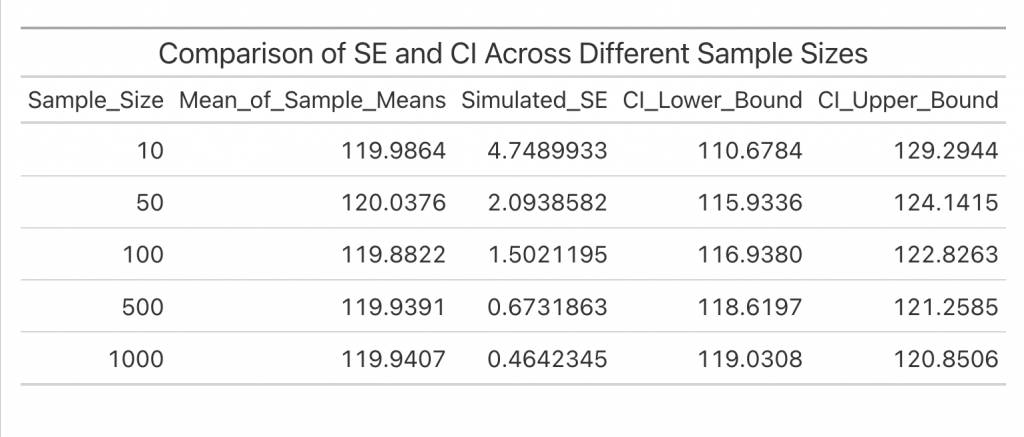Statistics is the science of learning from data. Every time researchers use a sample to understand a population, they are practising statistical inference. Over the past century, the way we make these inferences has changed dramatically. Each new approach has brought a different philosophy about what “truth” means and how we can best estimate it.
This article explains the main schools of thought in statistical inference, showing how they evolved from the early 1900s to the computer age. The discussion draws on Efron and Hastie’s Computer Age Statistical Inference (2021), which describes how classical, Bayesian, resampling, and modern computational methods all aim to uncover truth from limited data.
The Classical or Frequentist Era
The first formal school of statistical inference is known as the classical or frequentist approach. Developed by statisticians such as Ronald Fisher, Jerzy Neyman, and Egon Pearson in the early twentieth century, this framework treats the truth as something fixed but unknown. The data we observe are random samples from a larger population, and by studying these samples, we can estimate the true values that describe the population (Efron & Hastie, 2021).
In this view, probability represents the long-run frequency of events. For example, if we say there is a 5 percent chance of a test result being significant when there is no real effect, we mean that if we repeated the same experiment many times, about 5 out of 100 would show a false signal.
A key tool in this school is maximum likelihood estimation (MLE). It finds the values of unknown parameters that make the observed data most likely. This approach became the foundation for many classical methods, including hypothesis testing and confidence intervals. Classical inference is elegant and mathematically precise, but it depends on strong assumptions and analytical formulas. As problems became more complex, those formulas were often too difficult to compute.
The Bayesian Revival
An alternative view, known as Bayesian inference, was proposed much earlier, by Reverend Thomas Bayes in the 1700s. However, it became practical only in the late twentieth century, when computers made its calculations possible. Bayesian inference treats truth as something we hold beliefs about rather than something fixed and unknown.
In this view, we start with a prior belief—what we think is likely before seeing any data—and then update it using the evidence we collect to form a posterior belief. The process reflects how humans naturally think and learn. For instance, a doctor might believe a patient probably has a certain illness based on symptoms, but then revise that belief after seeing lab results.
Unlike classical inference, which relies on repeated sampling theory, Bayesian methods focus on how data change our level of belief. This approach is flexible and intuitive, but it requires specifying prior beliefs, which can introduce subjectivity. With modern computing, especially techniques such as Markov Chain Monte Carlo (MCMC), Bayesian methods have become widely used in fields such as medicine, economics, and artificial intelligence (Efron & Hastie, 2021).
The Resampling Revolution
By the 1980s, statisticians began to take advantage of computers to bypass complicated formulas entirely. Bradley Efron introduced the bootstrap, a resampling method that lets data “speak for themselves.” Instead of depending on mathematical derivations, the bootstrap repeatedly resamples from the observed data to estimate variability and uncertainty (Efron & Hastie, 2021).
This approach belongs to what Efron and Hastie call the computer age of inference. It does not require assumptions about theoretical distributions or prior beliefs. Instead, it uses the computer to generate thousands of simulated datasets from the original sample. By examining how results vary across these resamples, statisticians can understand how stable or uncertain their findings are.
Resampling methods changed the practice of statistics. They made inference accessible for complex problems where mathematical solutions were impossible. The bootstrap also bridged classical and modern approaches, keeping the idea of estimation but relying on computation instead of theory.
The Modern Predictive and Machine Learning Era
As data grew larger and more complex, statisticians faced a new challenge. Classical and Bayesian models often became too limited or too slow to handle modern datasets with thousands of variables. This led to new methods that emphasised prediction rather than pure inference.
Techniques such as penalised regression (for example, ridge and lasso regression) and machine learning algorithms emerged to handle this complexity. These approaches trade a little accuracy for much greater stability and predictive power. Instead of focusing on exact parameter estimates, they aim to predict outcomes reliably for new data (Efron & Hastie, 2021).
Philosophically, this represents a shift from “What is the true parameter?” to “Can we make good predictions?” Machine learning methods such as decision trees and neural networks no longer rely on probability theory in the traditional sense. They learn directly from data patterns and have transformed fields such as healthcare, finance, and climate science.
Comparing the Philosophies
Each school of inference reflects a different way of thinking about knowledge and truth.
| School | View of Truth | View of Probability | Key Question |
|---|---|---|---|
| Classical (Frequentist) | Truth is fixed; data are random | Long-run frequency | What value makes the data most likely? |
| Bayesian | Truth is uncertain; beliefs can change | Degree of belief | How should we update what we believe after seeing data? |
| Resampling | Truth can be estimated from data directly | Empirical variation | What does the data itself say about uncertainty? |
| Modern Predictive / Machine Learning | Truth may be too complex to model | Often not used explicitly | How can we best predict new outcomes? |
Despite their differences, these schools share one purpose: to draw meaningful conclusions from imperfect data. Each arose to overcome the limitations of the previous one. The classical approach provided solid mathematical foundations. The Bayesian approach added flexibility and belief updating. Resampling empowered statisticians through computation. Modern predictive methods embraced the complexity of real-world data.
Conclusion
The story of statistical inference is the story of how humans have tried to reason about the unknown. From equations written by hand to millions of simulations run by computers, each generation of statisticians has pushed the boundaries of what can be learned from data.
Efron and Hastie (2021) describe this journey as a transition from the “formula age” to the “computer age.” The essence of inference, however, remains the same: using limited evidence to understand the world. Whether through classical, Bayesian, resampling, or machine learning approaches, all aim to find truth in uncertainty and to make knowledge from data.
References
Efron, B., & Hastie, T. (2021). Computer age statistical inference: Student edition. Cambridge University Press.

